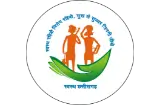CASP is a suicide prevention program that trains primary care health workers in delivering Contact and Safety Planning (“CASP”) to support adults who have recently attempted suicide in Chhattisgarh. The project is being implemented in two districts, in collaboration with the Chhattisgarh Department of Health and Family Welfare.
Why CASP?
Suicide is a leading cause of death in India, particularly in the central Indian state of Chhattisgarh which recorded a suicide rate of 28.2 in 2022, more than double the national average of 12.
Although Chhattisgarh does have a State Suicide Prevention Policy and efforts are being made to address suicide, the lack of specialised care providers dedicated to suicide-related issues in rural areas poses a significant challenge in several districts. Consequently, training health workers (nurses, community health workers) to deliver a brief suicide intervention may be a promising approach to tackle suicide.
According to the World Health Organization, individuals who have recently attempted suicide are at a high risk of dying by suicide in the future. Contact and Safety Planning (“CASP”) consists of
- regular follow-ups with individuals who have recently attempted suicide, and
- safety planning, a collaborative exercise which helps individuals identify coping and response strategies to suicidal feelings and behaviour.
CASP has shown promising results when tested in a refugee population in Tamil Nadu, but requires further testing to understand its feasibility and acceptability when delivered within the health system.
How are we addressing the issue?
In Chhattisgarh’s district hospitals and primary health facilities, first responders to suicide attempts are usually nurses in casualty wards. In the villages, Community Health Officers (CHOs) work within communities to address non-communicable diseases.
In this study, adults who appear in primary care casualty wards with attempted suicide will be identified and recruited by ward nurses. They will subsequently be followed up with by CHOs who will deliver the five-session CASP intervention in the community.
What is the potential impact?
Findings from CASP will shed light on real-world factors that may facilitate or impede the implementation of a suicide prevention program within the existing public health system in India.
Knowledge generated from our work will aid researchers, health professionals, and policy actors, based regionally, nationally, and globally, in their efforts to reduce the treatment gap for suicide.
Where have we reached?
The CASP study will complete 6 and 12 month follow up assessments with all participants in November 2025, and complete analysis of findings by April 2026.
Project Leads
Principal Investigators
Soumitra Pathare, Centre for Mental Health Law & Policy, ILS, Pune
Lakshmi Vijayakumar, SNEHA Suicide Prevention Centre, Chennai
Funders & Partners
Funded by
Mariwala Health Initiative
Partners
Department of Health & Family Welfare, Govt. of Chhattisgarh.

